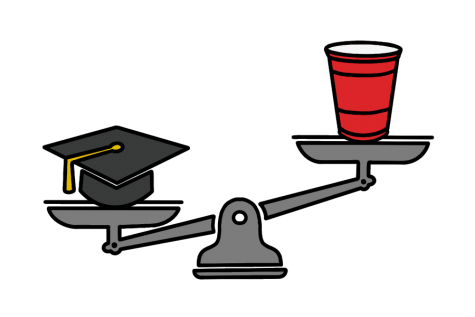OPINION | Partying harder, not smarter: Coronavirus on college campuses
October 20, 2020

After topping The Princeton Review’s list in 2018, Tulane University remains one of the top five party schools in America. While the university attempts to distance itself from this claim to fame through promoting Tulane’s ranking as the No. 1 Most Engaged in Community Service, the motto “work hard, play hard” is the unofficial student slogan.
Many prospective students are attracted to Tulane’s wild reputation. After all, social media and pop culture broadcast messages of the good times to come in college. Mardi Gras draws out-of-state students to New Orleans to experience the festival in Tulane’s backyard. The vast majority of the student body participates in the pageantry, culture and, of course, the alcohol-fueled parades.
Nevertheless, much like the rest of the United States during the COVID-19 pandemic, Tulane’s party culture has changed. This is not to say that partying has stopped. Rather, students adapted to the restrictions on bars and nightclubs in order to continue their beloved college nights out. Although the administration has been very clear regarding their behavioral expectations, it appears as though some members of the community have interpreted these guidelines as suggestions rather than rules.
Many universities around the U.S. closed their doors to on-campus learners following negative experiences with pandemic partying. Despite these clear precedents of negligence and the inevitability of partying, Tulane chose to remain open and thus must accept the consequences of its decision.
Since returning to campus, students have faced the reality that their nights out in New Orleans will no longer be the same. For the first two months of the semester, most bars in downtown New Orleans remained closed with alcohol sales from other vendors ending at 10 p.m. Bars that remained open often required the purchasing of food to receive drinks. These restrictions forced students to rethink their weekend plans instead of halting them altogether.
In the eyes of the administration, keeping bars closed was an ideal solution to the unquestionable problem of alcohol-fueled virus spreading. However, the university did not take into account the returning students’ unwavering determination to recreate Tulane’s party culture and their desire to experience what may have brought them to the school in the first place.
Though the nights of sweatily dancing shoulder to shoulder in a packed bar are no longer plausible, house parties, happy hours and crowded picnics at The Fly seem to satisfy students’ thirst for a good time. The university, unable to police these behaviors, attempts to mitigate the growing pandemic party scene with its anonymous reporting form and strongly worded emails.
Yet, these threats are no match against the all-powerful party scene and the fear of missing out. Since returning to campus, the frequency and scale of partying at Tulane has only grown. As students find new normalcy in their behaviors, they continue to tug harder at the already frayed leash of the administration.
Last week, Dean of Students Erica Woodly broadcasted a message to students in response to the ever-present partying and general student irresponsibility. Her message said that the university received many complaints of flouting of the rules including house parties, parties in the French Quarter and on Tchoupitoulas Street, students not wearing masks off campus and renting out party buses. Unsurprisingly, her evidently disappointed message came as no shock to the student body.
However, if Tulane truly wanted to thwart partying, they would not have pursued an on-campus learning model. The administration is well aware of Tulane’s reputation and the inhibitions of the student body. Consequently, they are complacent in the prevalence of and growing comfortability with partying in New Orleans this semester.
Regardless of constant pleas to respect the rules and increased testing protocols, students will continue to cope with the stress of COVID-19 by exercising their sacred right to party. As adults, both freshmen and upperclassmen clutch to their deemed independence and maturity. No amount of ominous emails, threats from the administration or shame from their peers can threaten their weekend plans.
That being said, should students make the informed choice to blindly disregard the rules, they must also understand the impact of their actions. In a city that has suffered great losses as a result of COVID-19, students and the administration have an obligation to come to terms with the current realities of the college experience’s detrimental effects.









marianne partridge • Oct 22, 2020 at 12:32 pm
Great reporting Lily Mae Lazarus.